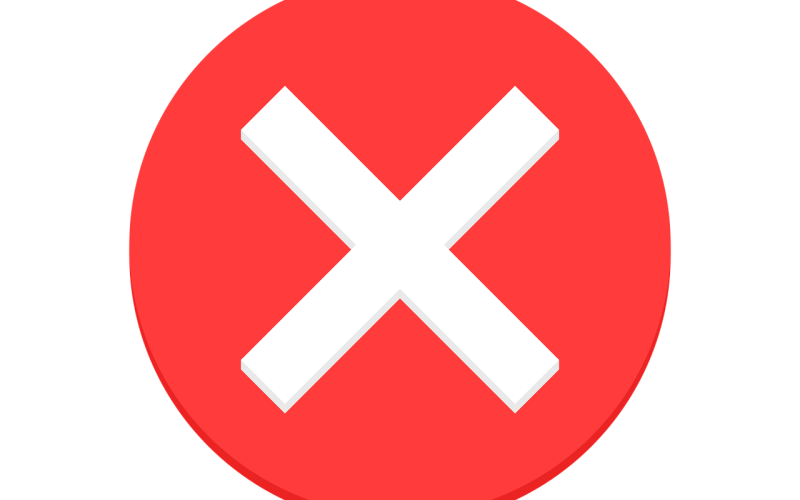Prescription medications play a vital role in our healthcare system, providing relief and treatment for various medical conditions. However, despite their importance, medication errors can occur, leading to potentially harmful consequences for patients. It is crucial to shed light on these errors to raise awareness and promote safer medication practices. In this article, we will explore the five frequent prescription medication errors and discuss ways to prevent them.
1. Incorrect Dosage
One of the most common prescription medication errors is administering an incorrect dosage. This can happen due to a range of factors, including miscommunication, confusion, or miscalculation by healthcare professionals or patients themselves. In some cases, patients may receive a dosage that is too high or too low, compromising the effectiveness of the medication or leading to adverse effects.
To prevent incorrect dosage errors, healthcare providers should double-check prescriptions, ensuring accurate dosing instructions. Patients should also actively participate in their healthcare by carefully following the prescribed dosage instructions and asking their healthcare provider or pharmacist for clarification when in doubt. Additionally, technology-based solutions, such as electronic prescribing systems, can help reduce dosage errors by minimizing manual calculations and providing alerts for potential discrepancies.
2. Wrong Medication
Mistakenly dispensing the wrong medication is another significant medication error that can occur in various healthcare settings. Factors contributing to this error include illegible prescriptions, look-alike or sound-alike medication names, and human error during medication administration or dispensing.
To combat wrong medication errors, healthcare professionals should prioritize clear and legible handwriting when writing prescriptions. They should also double-check medication names and verify them against the patient’s medical history and current condition. In addition, pharmacists play a crucial role in preventing wrong medication errors by diligently reviewing prescriptions and confirming the accuracy of the dispensed medication before providing it to the patient.
Patients can contribute to preventing wrong medication errors by actively engaging in their healthcare process. It is essential to review the medication label and cross-check it with the prescribed medication. If there are any doubts or discrepancies, patients should consult their healthcare provider or pharmacist for clarification.
3. Drug Interactions
Drug interactions occur when multiple medications are taken simultaneously, leading to unexpected side effects or reduced efficacy. Different medications can interact with one another, altering their intended effects or potentially causing harm to the patient. These interactions can occur between prescription drugs, over-the-counter medications, or even herbal supplements.
Healthcare professionals should be diligent in reviewing a patient’s medication history and current prescriptions to identify potential drug interactions. Advanced computerized systems can assist in flagging potential interactions, but healthcare providers should still exercise caution and carefully assess the risks and benefits of each prescribed medication.
Patients can play a proactive role in preventing drug interactions by providing their healthcare provider or pharmacist with a complete and accurate list of all the medications they are currently taking, including over-the-counter drugs and supplements. It is essential to communicate openly about any previous adverse reactions or side effects experienced while taking certain medications.
4. Allergic Reactions
Allergic reactions to medications can range from mild to severe and can sometimes be life-threatening. These reactions occur when the body’s immune system reacts negatively to a specific medication. Allergies may not be known at the time of prescribing or may develop over time.
To minimize the risk of allergic reactions, healthcare providers should obtain a detailed medical history from patients, including any known allergies. This information should be clearly documented in the patient’s medical records and communicated to all relevant healthcare professionals involved in the patient’s care.
Patients should be proactive in providing accurate information about their allergies to their healthcare providers and pharmacists. It is crucial to communicate any previous adverse reactions experienced with certain medications. If there are any concerns or doubts about a prescribed medication, patients should not hesitate to discuss them with their healthcare provider or pharmacist. In cases where allergies develop over time, patients should be vigilant in monitoring their body’s response to medications and report any unusual symptoms promptly.
5. Medication Administration Errors
Medication administration errors can occur during the process of delivering medication to the patient. These errors may involve incorrect timing, improper route of administration, or failure to follow specific instructions. Such errors can lead to ineffective treatment or adverse reactions.
To prevent medication administration errors, healthcare professionals should receive proper training and education on medication administration techniques. Clear and concise communication between healthcare providers, nurses, and other involved personnel is essential to ensure accurate medication delivery. It is crucial to follow established protocols and double-check medication labels and dosages before administering them to patients.
Patients should actively participate in their medication administration process, especially in settings where self-administration is required. It is important to carefully read and understand the medication instructions provided by healthcare professionals or pharmacists. If any uncertainties arise, patients should seek clarification to ensure proper administration.
Conclusion
Prescription medication errors can have severe consequences for patients’ health and well-being. However, with increased awareness and proactive measures, many of these errors can be prevented. Healthcare providers, pharmacists, and patients all play crucial roles in ensuring medication safety.
Clear and effective communication between healthcare professionals and patients is vital throughout the medication process. Healthcare providers should focus on accurate prescribing, thorough medication review, and diligent monitoring for potential interactions or allergies. Pharmacists should double-check prescriptions and provide accurate medication information to patients. Patients should actively engage in their healthcare, providing accurate information, asking questions, and understanding their medication instructions.
By working together and implementing preventive measures, we can significantly reduce the occurrence of prescription medication errors and create a safer healthcare environment for all. Let’s prioritize patient safety and commit to making medication errors a thing of the past.
Note: The information provided in this article is for educational purposes only and should not be substituted for professional medical advice. Always consult with your healthcare provider for personalized guidance and treatment options.

